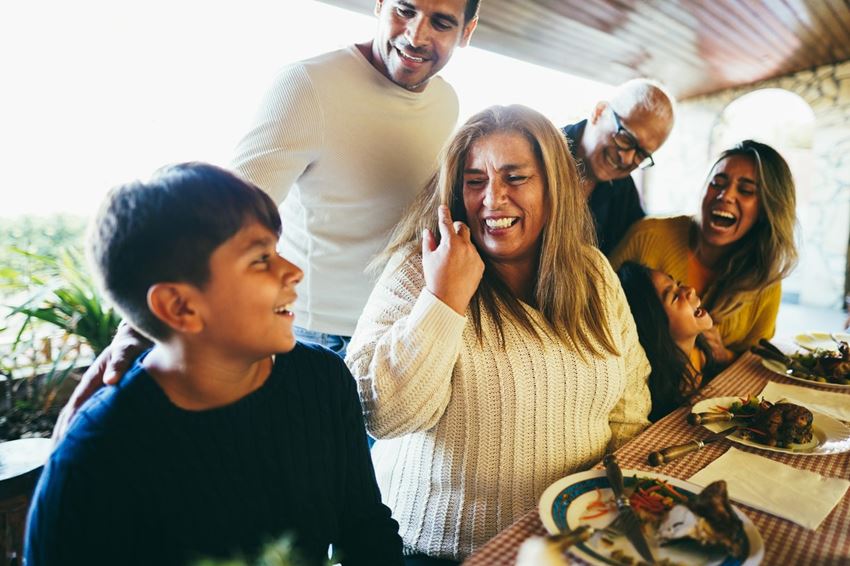Cancer prevention starts with you: 5 tips to reduce your cancer risk

In the past few hundred years, the healthcare world has made huge strides in understanding cancer. And while a lot of advancements have been made in treating the disease, much of the progress is in reducing your risk of developing it in the first place.
The best way to fight cancer is to take steps to prevent it. Fortunately, many cancer prevention measures are simple. By making small efforts to prevent cancer, you can make big impacts on your health.
1. Eat healthy.
Every day, you make decisions that impact your risk of developing cancer, starting with what and how much you eat.
"Eating healthy improves your overall health, reduces your risk of obesity (another cancer risk factor) and reduces your chances of developing cancer," says Aarti L. Shevade, MD, an oncologist at Main Line Health.
A healthy diet includes:
- Plenty of fruits and vegetables
- Whole grains, such as in bread and pasta, and brown rice
- Fiber-rich foods, like beans and peas
- Healthy meat options, like fish and poultry
- Foods that are not excessively high in calories
A healthy diet limits:
- Red meats, such as pork, lamb and beef
- Processed meats, such as sausage, bacon, deli meats and hot dogs
- Sugary drinks, such as soft drinks and fruit drinks
- Highly processed foods and refined grain products, such as white bread and white rice
- Alcohol
Following a healthy diet may require some planning, but it's well worth the effort when it comes to cancer prevention.
2. Get moving.
Physical activity has a wide range of benefits. It's a known way to control your weight, improve your hormone levels, support your immune system and reduce your risk of cancer.
Aim to get at least 150 minutes of moderate-intensity activity (like walking, biking, gardening or housework) or 75 minutes of vigorous-intensity activity (exercise that increases your heart rate, uses your muscles and makes you sweat) each week. Or, you can do a combination of the two.
"No matter what your activity level is now, adding just a little bit of exercise each day can go a long way in keeping you healthy and cancer-free," say Dr. Shevade.
3. Don't smoke.
All kinds of tobacco products contain thousands of chemicals—70 of which are known to cause cancer (called carcinogens).
“From nicotine and formaldehyde to arsenic and ammonia, these are just a few of the carcinogens that you inhale with every puff of a cigarette, cigar or pipe,” says Dr. Shevade. “As for e-cigarettes, while they’re marketed to be safer, they contain addictive nicotine, flavorings and other chemicals known to cause cancer.”
The best way to protect your health is to quit smoking. And it's never too late to stop. Every day you don't smoke, your health improves, and your risk of cancer decreases.
For help with quitting, Main Line Health's Tobacco Dependency Treatment Program offers free personal sessions to help you stop smoking.
4. Wear sunscreen.
The warmth of the sun on your skin may feel great, but without sunscreen it can be harmful. Most skin cancers are caused by excess sun exposure, particularly ultraviolet (UV) rays. These rays cause damage to your skin cells, which can lead to cancer.
Protecting yourself from the sun starts with sunscreen. Before heading outside (in both the summer and winter months), put on a broad-spectrum sunscreen with an SPF of 15 or higher that blocks both UVA and UVB rays. Make sure to reapply every two hours or after you swim, sweat or use a towel to dry off.
5. Protect against HPV.
HPV—or human papillomavirus—is common. In fact, eight out of ten people will get HPV at some point in their lives. And HPV can go on to cause six different types of cancer.
While HPV isn't treatable, it is preventable—starting with the HPV vaccine. It's most effective when given to children between the ages of 9 and 12, but it can be given up to age 45.
Detecting early signs of cancer
While these steps to reduce your risk of cancer are crucial, it's also important to use cancer screenings to detect any signs of cancer as early as possible. Cancer screening tests are used to find cancer even if you don't have symptoms. The earlier cancer is found, the easier it is to treat.
You can also determine your cancer risk based on your genetics. Main Line Health's Genetics and Risk Assessment Program offers consultations for cancer genetics as well as cardiovascular genetics and prenatal genetics. This knowledge can help you and your healthcare provider make a plan to reduce your risk of developing cancer.
With advanced tools and knowledge, cancer prevention, early diagnosis and effective treatment are not only possible but are a reliable aspect of healthcare as we know it.
Next steps:
Read more about oncologist Aarti L. Shevade, MD
Learn more about cancer screening tests at Main Line Health
Do you know everything you should know about your family health history?
 Content you want, delivered to your inbox
Content you want, delivered to your inbox
Want to get the latest health and wellness articles delivered right to your inbox?
Subscribe to the Well Ahead Newsletter.
